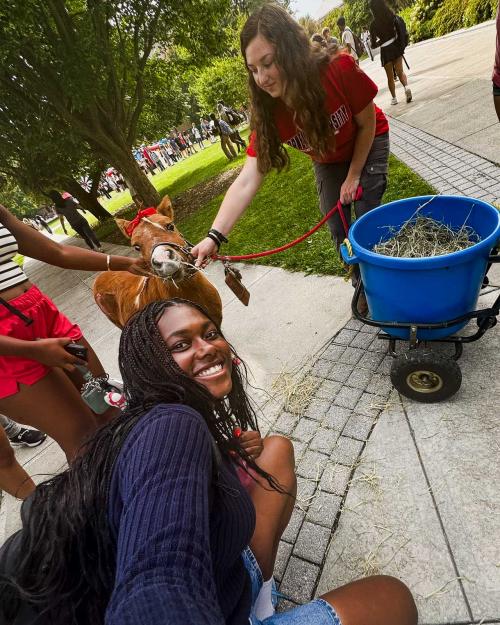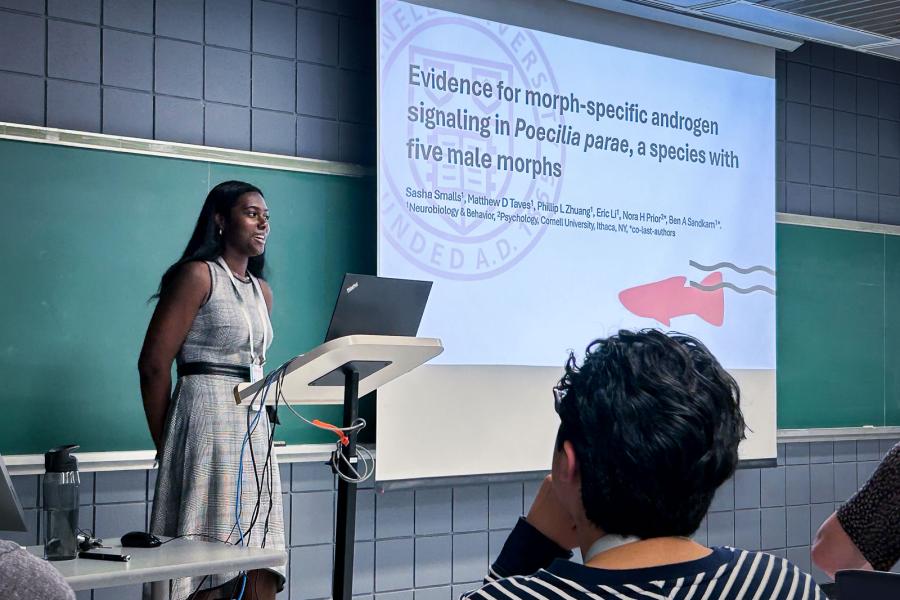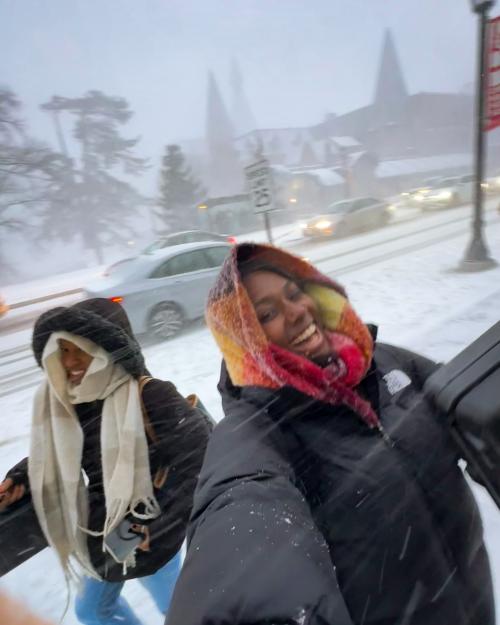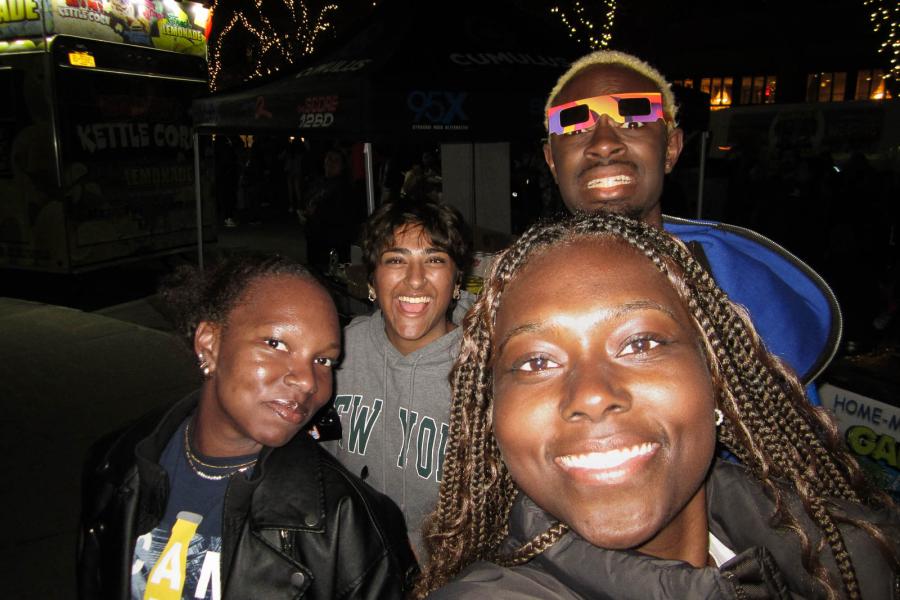Sasha Smalls
Biological Sciences
Valley Stream, N.Y.
What is your main extracurricular activity and why is it important to you?

The Biology Scholars Program (BSP) has been the single most fulfilling extracurricular of my time at Cornell. From the moment I was accepted as a freshman, I found myself surrounded by a community that spanned class years, career paths and identities. I wrote in my BSP application about wanting to transform a daunting 200+ person introductory biology lecture into something that felt like a tight-knit community. Now, as a graduating senior and president of BSP, I can say that the program did more than just shrink the major; it expanded my perspective. It's a testament to BSP's unique approach — simultaneously nurturing community and fostering individual growth — that has shaped my undergraduate journey. It’s a model I’ll carry with me long after Cornell.
What are the most valuable skills you gained from your Arts & Sciences education?
¡Puedo hablar español! When I took my first Spanish class in middle school, we had a writing prompt: Coordinate with your host mom about your plans for the semester. I had never heard of a host mom before, but I was instantly hooked by the idea of learning in another country and language. Nearly a decade later, I spent the summer of 2023 studying abroad in Madrid, Spain, thanks in large part to the language requirement and support within Arts & Sciences. While abroad, I took classes with Cornell professors, monologued in Spanish, wandered museums and traced the threads of Spanish history across cities and centuries. My freshman-year Spanish professor — who hails from Spain herself — became both a mentor and a friend, and we still meet in Klarman to share any life updates or future plans. That kind of relationship, and that kind of learning, is what A&S made possible.

What have you accomplished as a Cornell student that you are most proud of?
I’m proudest of my research accomplishments. During my time at Cornell, I’ve had the opportunity to conduct research on both zebra finches and freshwater guppies, gaining experience in everything from behavioral observation to protein extraction. More recently, I’ve presented my work at conferences across the U.S. and Canada, completed a senior thesis and earned co-authorship on a research paper. These milestones wouldn’t have been possible without the guidance, mentorship, and unwavering support of my incredible PI, Dr. Nora Prior, and the collaborative spirit of the Social Sensory Neurogenomics research team and its partner labs. Research at Cornell wasn’t just about generating data; it was about cultivating curiosity, building community and learning how to ask meaningful questions.
How have your beliefs or perspectives changed since you first arrived at Cornell?

Cornell introduced me to more perspectives and personalities than I could’ve imagined, and I’ve learned to pick my battles. I used to believe that if you threw enough evidence at someone or sat down with them and had a heart-to-heart, you’d both leave with a shared understanding. But the truth is: people are different. That’s not a flaw, just reality. And realizing that doesn’t mean you stop trying; it means you become more gracious, more discerning and more aware of the work it takes to hold space for others without losing yourself. Growth isn’t about “winning” every disagreement. It’s about recognizing that understanding is a process, not a prize.
Who or what influenced your Cornell education the most?
My peers. Always. These weren’t one-person classes, and this wasn’t a solo journey. At first, I thought I could stare long enough at the material to figure it all out on my own. But slowly, I learned to ask for help — first from TAs and professors, then from classmates. I now say that I’d much rather learn from someone who didn’t grasp the material on their first try. Each of my most challenging classes is forever tied to the friendships and collaborations that helped me through them. Learning is a communal act, and Cornell made me a better teammate in that process.

Every year, our faculty nominate graduating Arts & Sciences students to be featured as part of our Extraordinary Journeys series.Read more about the Class of 2025.




